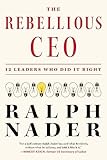Far too often, I have the nagging feeling that we’re having the wrong discussion. About what? Pretty much darned near everything but none more so than the endless pro-life vs. pro-choice debate.
During a recent community conversation in Louisville, KY, Loretta Ross, the National Coordinator of SisterSong Women of Color Reproductive Health Collective offered what I think is a far more productive framework for discussing the abortion issue. Ross posits that abortion is only part of the issue of reproductive health and rights, which she points out include not only the right not to have a child but also the right to have a child.
On their website, SisterSong defines reproductive justice as an intersectional theory that integrates reproductive health and social justice emerging from the “experiences of women of color whose communities experience reproductive oppression. It is based on the understanding that the impact on women of color of race, class and gender are not additive but integrative, producing this paradigm of intersectionality.” The site also points out that,
“The intersectional theory of Reproductive Justice is described as the complete physical, mental, spiritual, political, social, environmental and economic well-being of women and girls, girls, based on the full achievement and protection of women’s human rights. It offers a new perspective on reproductive issue advocacy, pointing out that as Indigenous women and women of color it is important to fight equally for (1) the right to have a child; (2) the right not to have a child; and (3) the right to parent the children we have, as well as to control our birthing options, such as midwifery. We also fight for the necessary enabling conditions to realize these rights.”
Obviously that language goes far beyond the run-of-the-mill pro/anti abortion rhetoric. By using this framework, we can start to see abortion not as an isolated issue of choice, but part of a far more complex set of issues. And the truth is, despite Roe v. Wade, “choice”, like so many other choices is a right of privilege. If you are poor, or live far from a clinic, there is not much of a choice.
Ross also stressed that abortion needs to be seen as a human rights issue and points to the 1948 Universal Declaration of Human Rights, which declares the right of every person to live free of slavery. And being forced to bear children is most certainly a form of slavery as Ross is quick to point out.
The flip side of the abortion rights issue, the right to have children is every bit as important a matter within the framework of Reproductive Justice. Although it is an issue in this country, it is even more so in less developed nations that have high maternal mortality rates.
Every year, more than half a million women die of complications of pregnancy and childbirth as a result of economic, cultural and political injustice. More than 99% of those deaths are preventable. Jane Roberts, co-founder of 34 Million Friends of UNFPA points out that. “Lack of family planning commodities and of health care workers to educate about and furnish family planning to eager consumers is the root cause of the 40 million abortions which take place every year, half of which are risky, illegal, unsafe. If the world really cared for its women, this would not be happening. About 70,000 women die during the abortion or the immediate aftermath, millions more suffer temporary or permanent disability. Then they are “compassionately” offered PAC (post-abortion care) by our government and others.”
Yet as a recent UN report points out, the “sharp decline in international funding for reproductive health is threatening global efforts to reduce poverty, improve health and empower women worldwide.” According to Thoraya Ahmed Obaid, executive director of the UN Population (UNFPA), “The result is increasing numbers of unwanted pregnancies, rising rates of unsafe abortion, and increased risks to the lives of women and children.” Obaid also noted that, ”research indicates that ensuring access to family planning alone would reduce maternal deaths by 20 to 35 percent and child deaths by 20 percent.”
As Ross points out, it isn’t that choice is not an issue, but rather that it is one of many connected reproductive justice issues that need to be addressed. And that is the conversation we should be having.










